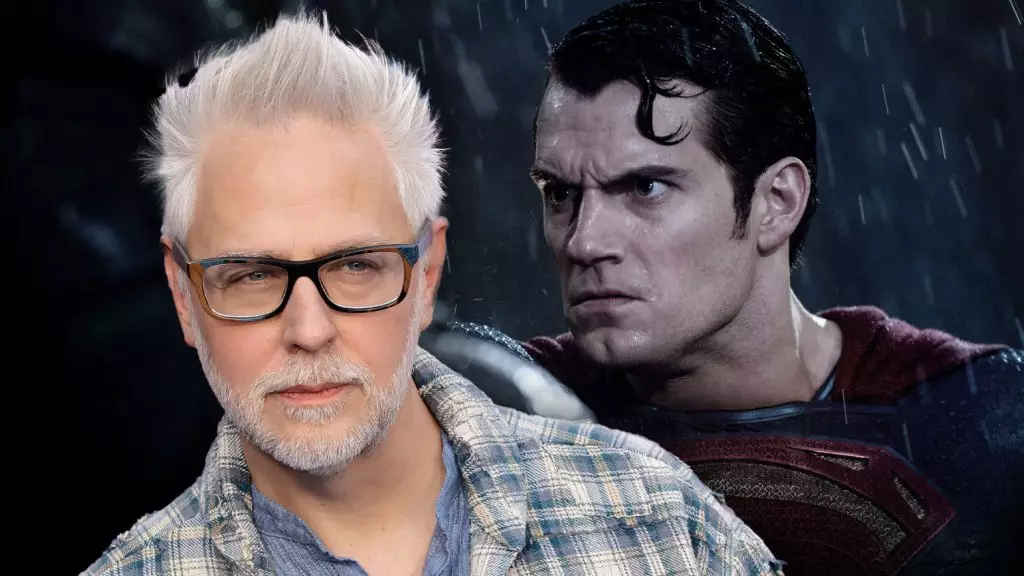The recent saga involving Henry Cavill’s abrupt exit from the DC Universe exemplifies a troubling tendency within the entertainment industry: a veneer of respect masked by ruthless corporate maneuvering. Director James Gunn’s recounting of the dismissal reveals a disconcerting gap between public relations spin and the cold reality of decision-making behind closed doors. While Gunn and Peter Safran expressed regret and described Cavill as an “absolute gentleman,” the underlying truth is that fandom and talent are often sacrificed for corporate agendas that prioritize control and marketability over genuine storytelling. The narrative of Cavill’s departure is dressed up as a considerate gesture, but it’s ultimately a display of power that dismisses the importance of actor investment and character continuity.
Industry insiders often spin the narrative as difficult but necessary restructuring, yet this superficial gloss undermines the very core of how creative projects should evolve. The decision to cast new talent like David Corenswet is positioned as a fresh start, but it often feels like an opportunistic move designed to create buzz rather than respect the invested efforts of existing actors. This pattern of discarding beloved portrayals in favor of new faces reveals an underlying prioritization of franchise refreshment over authenticity, leaving fans disillusioned and loyal actors like Cavill feeling betrayed or discarded.
The Short-Term Gain vs. Long-Term Trust Dilemma
The real damage caused by such decisions extends beyond individual actors to the very foundation of fan trust. Audiences appreciate consistency and authenticity; they invest emotionally in characters, actors, and the worlds they inhabit. When studios abruptly reshape these elements based on shifting corporate visions, it signals a disrespect not only for the fans but also for the actors who dedicate their craft to these roles. The choice to reboot Superman with a younger, unproven actor may offer fresh opportunities, but it does so at the expense of narrative integrity and emotional investment.
Furthermore, the industry’s tendency to prioritize “marketable” faces over established talent exacerbates the cycle of superficiality. Cavill’s departure wasn’t simply a professional decision but a symbol of the commodification of storytelling. The studio’s focus on a shiny, marketable product over long-term character development and actor dedication risks alienating core audiences who crave genuine, sustained storytelling. This short-sighted approach inevitably results in a fractured fan base that demands more transparency and respect from the industry.
Corporate Control Threatening Creative Innovation
At the heart of this controversy lies a systemic problem: corporate interference dilutes creative authenticity. When decisions are driven predominantly by executives and market data rather than narrative integrity, the art of storytelling suffers. The industry’s fixation on rebooting and recasting as quick fixes ignores the deeper value of continuity and character development. Such decisions often reflect a greed-driven impulse to maximize immediate profits rather than fostering genuine innovation or respecting past contributions.
By replacing actors like Cavill seemingly overnight, studios send a clear message that they view storytelling as interchangeable and disposable. This disregard for long-term character arcs discourages talented performers from fully investing in their roles, knowing that their work could be discarded if it no longer aligns with corporate interests. Creative integrity is sacrificed on the altar of corporate power, threatening the very foundation of authentic storytelling that should underpin our entertainment culture.
The fight for respect in Hollywood should extend beyond superficial politeness and toward a recognition of the deep emotional and artistic investments actors make, and a commitment to preserving the integrity of beloved characters. Otherwise, the industry risks turning into a revolving door of fleeting trends rather than fostering genuine, meaningful stories for a skeptical, discerning audience.



Leave a Reply